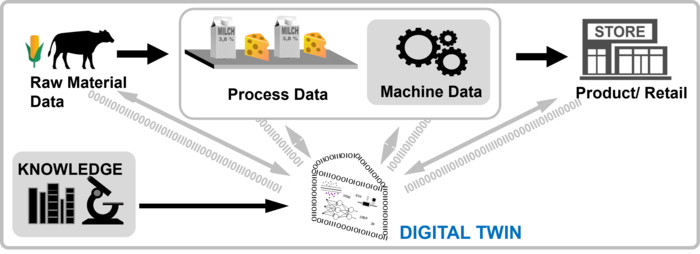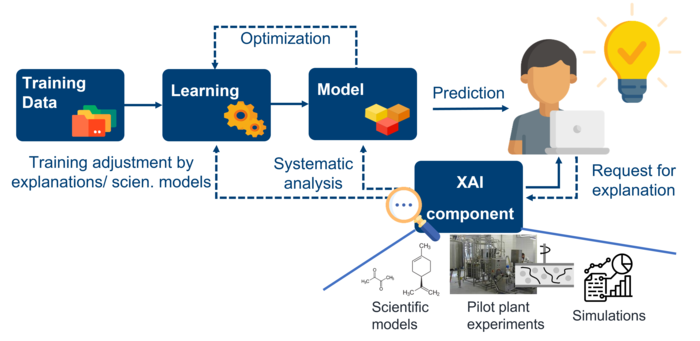The official title of the project is: Digital process mapping through machine learning for the predictive detection of critical process states and quality parameters using the example of a fermented and a shelf-stable food. In the following, the individual elements of the project are briefly explained.
Digitization in the food industry can be used to implement various trends. These include flexible, real-time contract manufacturing and individualized food products. This creates a need for real-time analysis of production lines to monitor changes in raw materials, ingredients and/or process parameters. The challenge, however, is that food manufacturing is very complex and varies from manufacturer to manufacturer. Another obstacle is the lack of IT skills in the workforce.
In the future, a digital twin could be used to map and analyze processes (see Figure 1). Data from the entire food value chain and theoretical knowledge are needed to monitor and improve food and its production. This is very complex for food due to its changes at the chemical, physical and microbiological levels. Currently, the analysis of processes often lacks the link between data and theoretical models. Therefore, two examples are used to link data and theoretical knowledge.
Specifically, this project will analyze data from companies where a critical process or quality condition exists or recurs. Machine learning techniques will be used to train models with the data so that the critical patterns can be learned and predicted by the models (see Figure 2). The predictions of the models are validated e.g. by experiments in the pilot plant.



